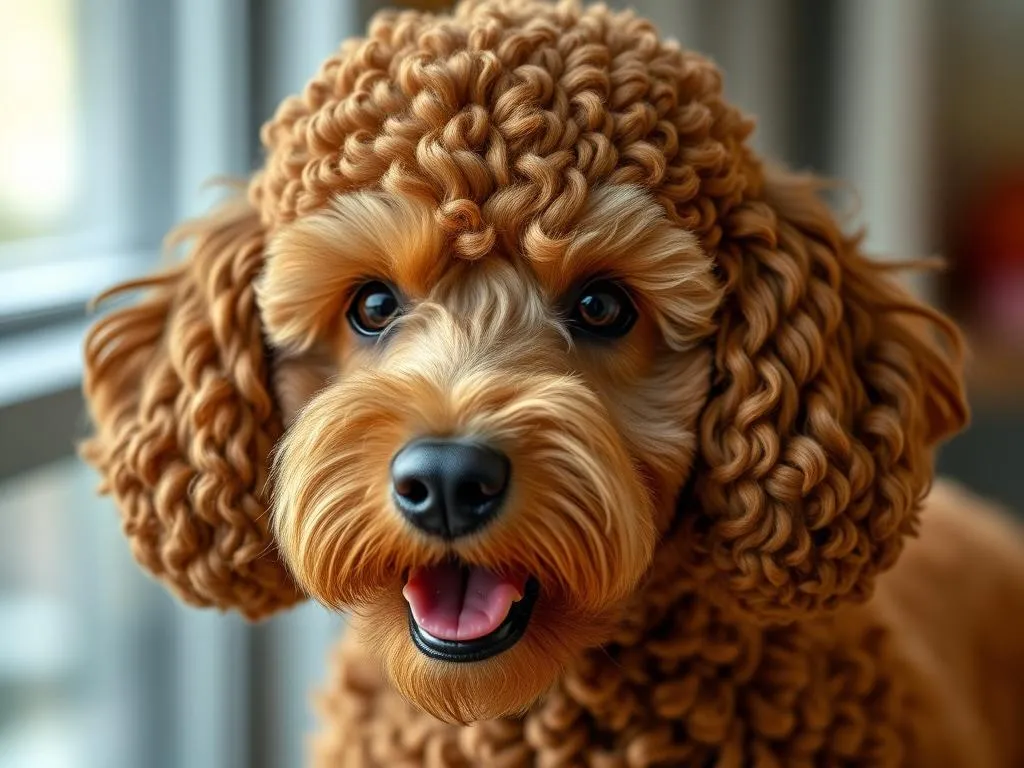
Introduction
Dog breeds are not only fascinating in their diversity but also significant in understanding canine behavior, health, and care requirements. Among the numerous breeds, the Corded Poodle stands out due to its unique appearance and characteristics. This breed, with its distinctive corded coat, is not only visually striking but also exhibits an engaging temperament. By exploring the Corded Poodle, we can appreciate the nuances that come with different dog breeds and why it’s essential for potential dog owners to understand them.
Understanding Dog Breeds
Definition of Dog Breeds
A dog breed is a group of dogs with a common ancestry, similar characteristics, and specific traits that distinguish them from other breeds. Breeds are often defined by their physical attributes, such as size, coat type, and color, as well as behavioral traits and temperament. Breed standards are established by kennel clubs and organizations, which outline the ideal characteristics of each breed, ensuring consistency and quality among dogs.
The Importance of Dog Breeds
Understanding dog breeds plays a critical role in predicting behavior and temperament. Different breeds have evolved to fulfill specific roles, such as herding, hunting, or companionship, which influences their behavior and interaction with humans and other animals. Additionally, breeds vary in health concerns and care requirements, making it vital for prospective dog owners to choose a breed that aligns with their lifestyle.
Introduction to the Corded Poodle
History of the Poodle
The Poodle’s origins can be traced back to Germany, where it was initially bred as a water retriever. The breed’s name is derived from the German word “Pudel,” meaning “to splash in water.” Over time, Poodles migrated to France, where they gained popularity among nobility and became a symbol of elegance and sophistication.
The Corded Poodle is a unique variation of the standard Poodle, characterized by its distinctive corded coat that resembles dreadlocks. This unique coat has historical significance, as it was believed to provide insulation and protection while the dog worked in water. As a result, the Corded Poodle has evolved into a breed that is not only visually unique but also historically rich.
Characteristics of the Corded Poodle
Physically, the Corded Poodle shares common traits with other Poodles, including an athletic build and a curly coat. However, its most distinguishing feature is the corded coat, which requires specific grooming techniques to maintain. Corded Poodles come in various colors, including black, white, apricot, and gray.
In terms of temperament, Corded Poodles are intelligent, friendly, and eager to please, making them excellent companions. They are known for their playful nature and adaptability, thriving in various environments, whether in a bustling household or a quieter setting.
Types of Poodles
Poodles are classified into three main types: Standard, Miniature, and Toy. While all types share similar characteristics, they differ in size and some behavioral traits. The Corded Poodle is primarily associated with the Standard size, which ranges from 15 to 24 inches tall and weighs between 40 to 70 pounds.
- Standard Poodle: Known for its intelligence and versatility, the Standard Poodle excels in various dog sports and activities.
- Miniature Poodle: Smaller in size, the Miniature Poodle is often more active indoors and requires less space for exercise.
- Toy Poodle: The Toy Poodle is the smallest of the three, often favored for companionship due to its diminutive size and affectionate nature.
When comparing the Corded Poodle to other types, one can note that the corded coat is typically more pronounced in the Standard Poodle variety.
Care and Maintenance of a Corded Poodle
Grooming Needs
Grooming is paramount for the Corded Poodle to maintain the health and appearance of its unique coat. The corded coat requires regular maintenance to prevent matting and ensure cleanliness.
- Techniques: To maintain a corded coat, it’s essential to perform regular grooming sessions. This includes separating the cords to prevent them from becoming tangled and using a specialized comb designed for corded coats.
- Recommended Frequency: Grooming should be conducted every 4 to 6 weeks, depending on the coat’s condition. Bathing should also be done periodically to keep the coat fresh.
- Products: Use a mild dog shampoo and conditioner specifically formulated for poodles to prevent drying out the skin and coat.
Diet and Nutrition
Proper nutrition is crucial for the health of a Corded Poodle. Like all Poodles, they require a balanced diet rich in protein, healthy fats, and essential vitamins and minerals.
- Nutritional Requirements: A high-quality dog food that lists meat as the first ingredient is advisable. Consider dog foods formulated for active breeds to meet their energy needs.
- Recommended Brands: Brands like Royal Canin, Blue Buffalo, and Wellness offer excellent options tailored to the nutritional needs of Poodles.
Exercise and Activity Levels
Corded Poodles are energetic dogs that require regular exercise to maintain their physical and mental health.
- Energy Levels: This breed thrives on activity and enjoys outdoor play, walks, and engaging games.
- Recommended Activities: Activities such as swimming, agility training, and obedience training are excellent for keeping them active and mentally stimulated.
- Daily Exercise Routine: Aim for at least 60 minutes of exercise daily, divided into walks, playtime, and structured activities.
Training and Socialization
Importance of Training
Training is essential for the Corded Poodle, as they are intelligent and eager to learn. Early training and socialization help to ensure they grow into well-adjusted adults.
Training Techniques
Positive reinforcement is the most effective training method for Poodles. This involves rewarding desired behavior with treats, praise, or play.
- Challenges: Some Corded Poodles may exhibit stubbornness, so consistency is key. Patience and persistence will yield the best results.
Socialization Tips
Socializing a Corded Poodle with other dogs, pets, and people is vital for developing a well-rounded temperament.
- Activities: Puppy classes, dog parks, and playdates can provide excellent opportunities for socialization.
- Environments: Exposing them to various environments, sounds, and experiences will help them adjust to different situations as they grow.
Health Considerations
Common Health Issues in Poodles
Like all breeds, Corded Poodles are prone to specific health issues, including hip dysplasia, eye disorders, and skin conditions.
- Preventative Care: Regular veterinary check-ups and vaccinations are essential for early detection and treatment of health concerns.
Lifespan and Aging
The typical lifespan of a Corded Poodle ranges from 12 to 15 years. As they age, their care needs may change.
- Caring for Aging Poodles: Adjusting their diet, exercise routine, and providing regular veterinary care will help maintain their quality of life as they enter their senior years.
Corded Poodle vs. Other Breeds
Comparison with Other Hypoallergenic Breeds
Corded Poodles are often sought after for their hypoallergenic qualities, making them an excellent choice for allergy sufferers.
- Advantages: Compared to breeds like the Maltese, Bichon Frise, and Portuguese Water Dog, Corded Poodles have a unique combination of intelligence, trainability, and low-shedding coats.
- Breeds Comparison: While Maltese and Bichon Frise are also hypoallergenic, they may require different grooming techniques and have varying exercise needs.
Unique Traits of the Corded Poodle
The Corded Poodle possesses distinctive characteristics that set it apart from other breeds. Its corded coat is not only a visual signature but also serves practical purposes, such as insulation and reduced shedding.
- Why Choose a Corded Poodle: Prospective dog owners may find that the unique aesthetic, combined with the breed’s intelligence, adaptability, and hypoallergenic qualities, makes the Corded Poodle a compelling choice for a family pet.
Conclusion
The Corded Poodle is more than just a visually striking breed; it embodies intelligence, playfulness, and a rich history. Understanding the characteristics, care requirements, and training needs of this breed can help potential dog owners make informed decisions. When choosing a breed, it’s essential to consider lifestyle, activity levels, and grooming dedication to ensure a harmonious relationship with a new furry family member.
FAQs About the Corded Poodle
What is the lifespan of a Corded Poodle?
The lifespan of a Corded Poodle typically ranges from 12 to 15 years, depending on genetics, health, and care.
Are Corded Poodles hypoallergenic?
Yes, Corded Poodles are considered hypoallergenic due to their low-shedding coat, making them suitable for allergy sufferers.
How often should a Corded Poodle be groomed?
A Corded Poodle should be groomed every 4 to 6 weeks to maintain the coat and prevent matting.
What are common health issues in Poodles?
Common health issues in Poodles include hip dysplasia, eye disorders, and skin conditions. Regular veterinary check-ups can help monitor and address these concerns.
How much exercise does a Corded Poodle need?
Corded Poodles require at least 60 minutes of exercise daily to stay healthy and happy, including walks, playtime, and structured activities.









